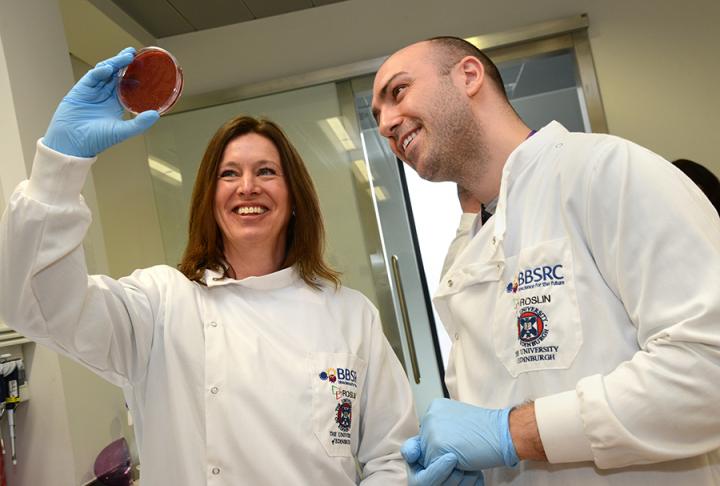Pioneering patient study celebrated at sepsis event
DNA samples from patients affected by sepsis could help scientists identify genes linked to the condition.
Research that seeks to identify genes linked to sepsis is to be highlighted at an event at the Roslin Institute.

Those attending the event, organised by Sepsis Research – also known as the Fiona Elizabeth Agnew Trust (FEAT) – will hear of ongoing efforts towards a large-scale study into the life-threatening illness.
Researchers are attempting to obtain DNA samples from large numbers of patients affected by the condition, in which severe infection triggers immune system processes that can lead to organ failure.
Treatment challenge
Extensive tests of new drugs over the past four decades have not led to any new therapies for the disease, which causes hundreds of thousands of deaths every year.
Research at the University, led by Dr Kenneth Baillie, takes the novel approach of investigating the genetic links to infection.
The team is working with intensive care units across the UK to find patients to take part in their study.
By comparing the DNA of critically ill patients with that of people in the general population, scientists aim to discover specific genes linked to the processes behind sepsis.
Selective study
Sepsis can arise in patients with a severe infection of any type, and this complicated background to the disease can frustrate efforts to understand how it occurs.
Researchers hope to identify patients who have similar infections underlying their sepsis, and who have been healthy prior to developing the condition.
This would allow a fair analysis, free from complicating factors that might influence the result.
Sepsis Research, which was set up by Craig Stobo after his wife died from the condition, supports the work through a donation to the University of Edinburgh.
Dr Baillie will give an update on sepsis research at the event, and Joe Fitzpatrick, Minister for Public Health, Sport & Wellbeing, will speak about the Scottish Government’s perspective on awareness of the condition.
We need to compare people who survive sepsis with those who do not, on a level playing field. If we find a gene that changes a patient’s chance of dying from sepsis, then we have something that has so far eluded us. We are grateful to have valued support from Sepsis Research towards these goals.
** The Roslin Institute is part of the University of Edinburgh’s Royal (Dick) School of Veterinary Studies. **
Related links
Gene study set to investigate how flu jumps species
Genetic insights into Inflammatory Bowel Disease
Click here to visit the study website


